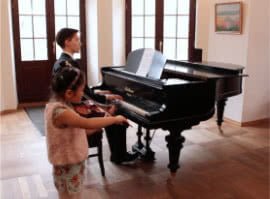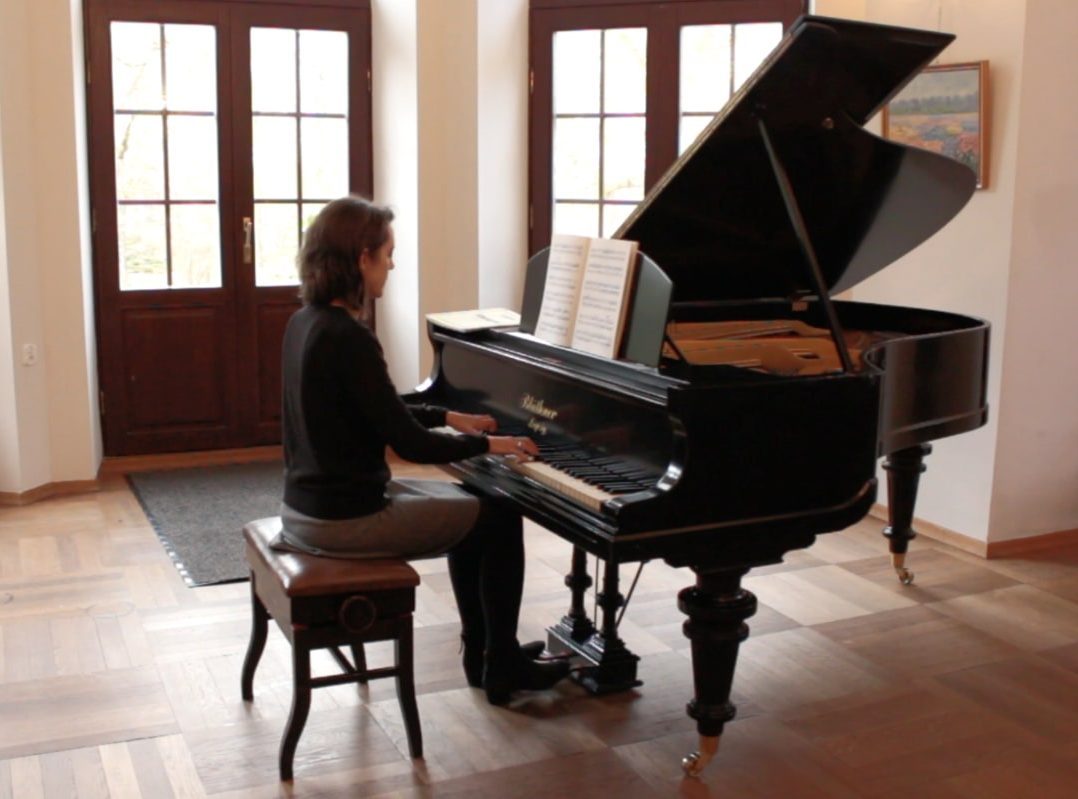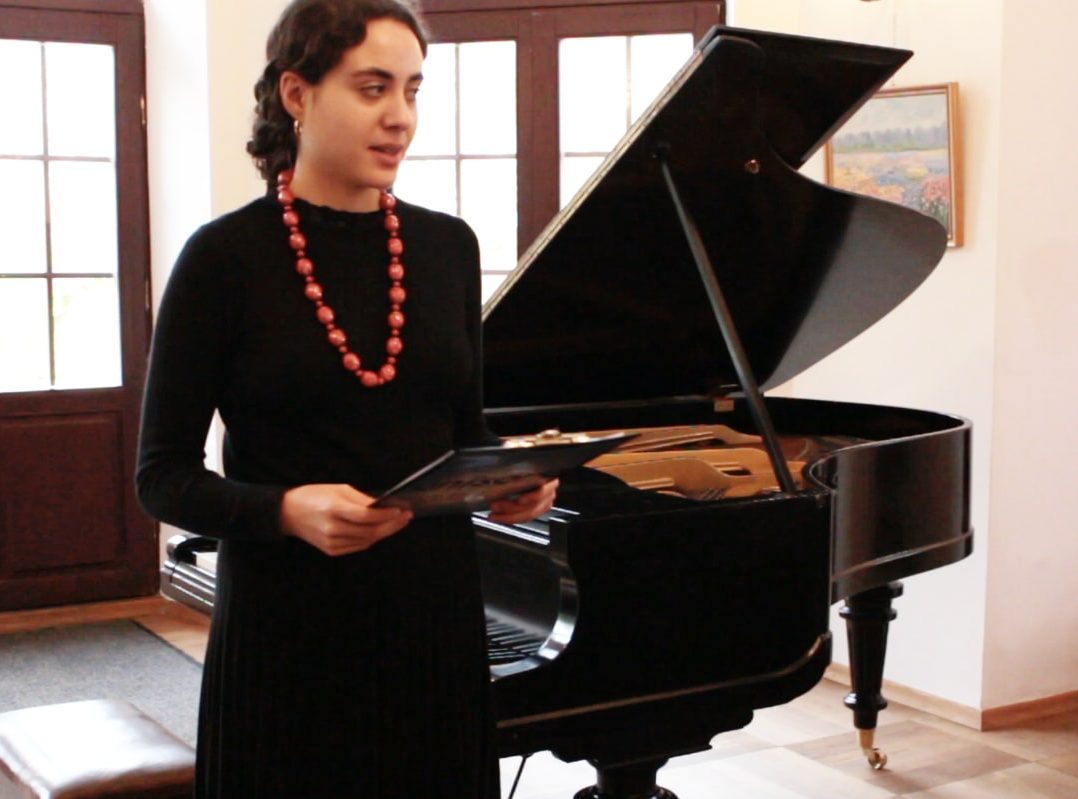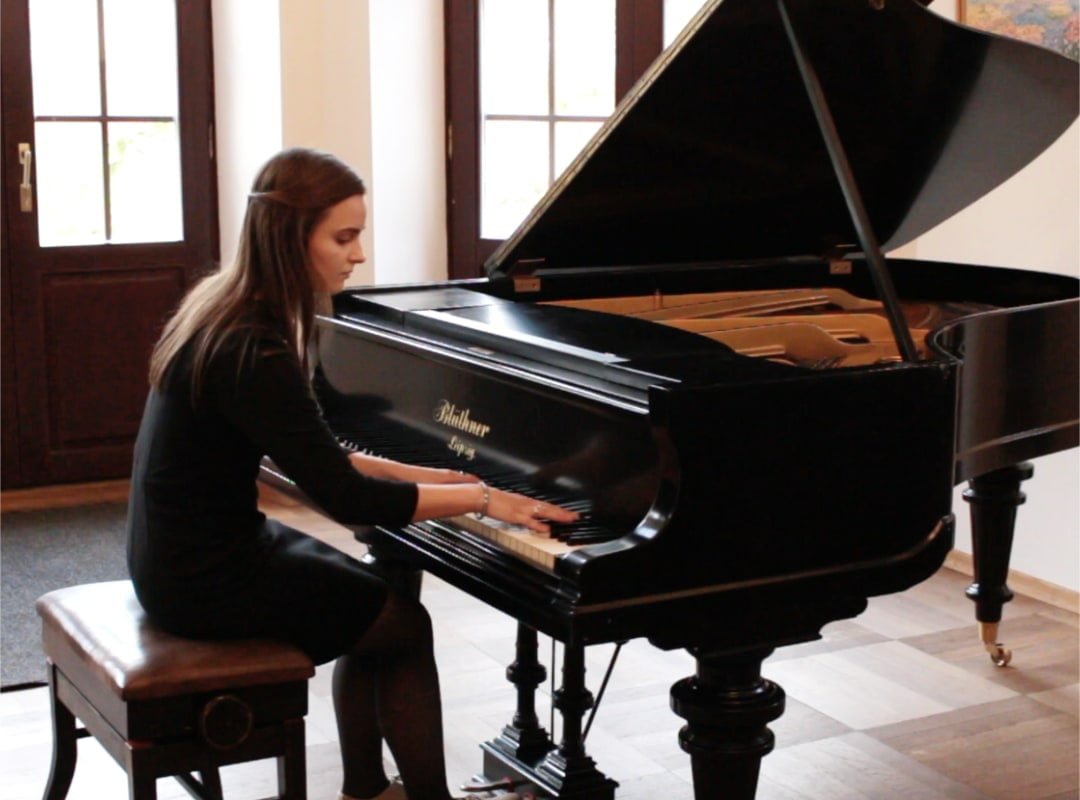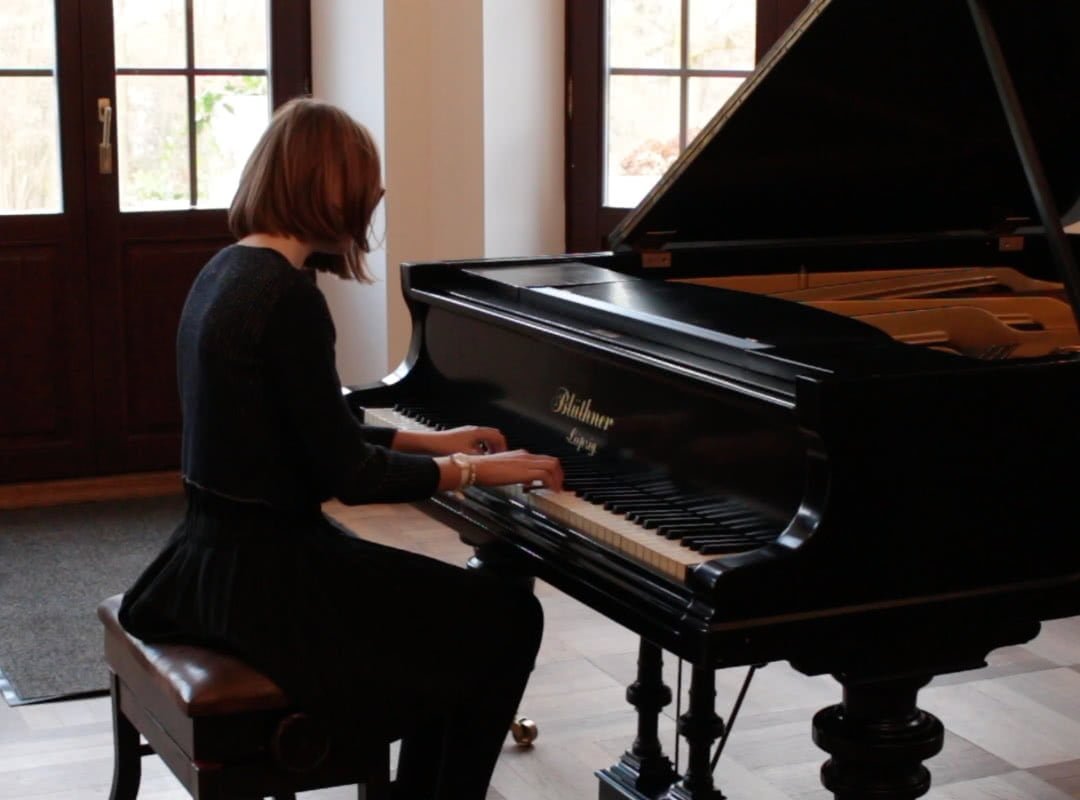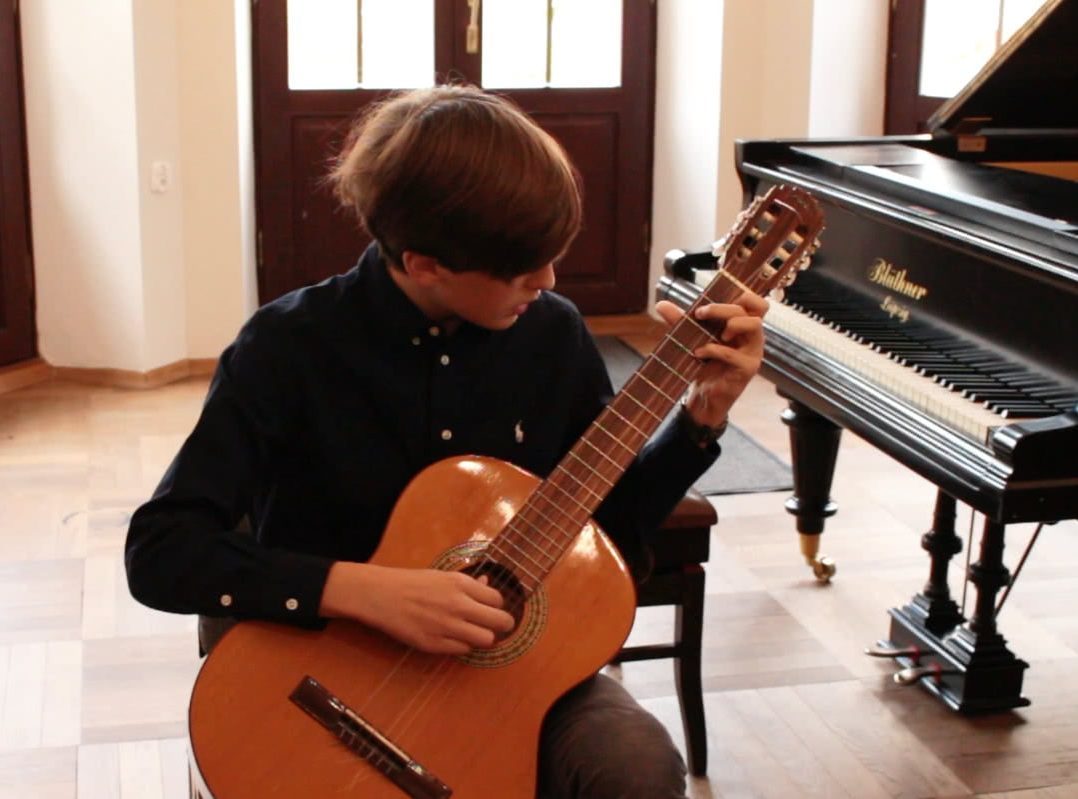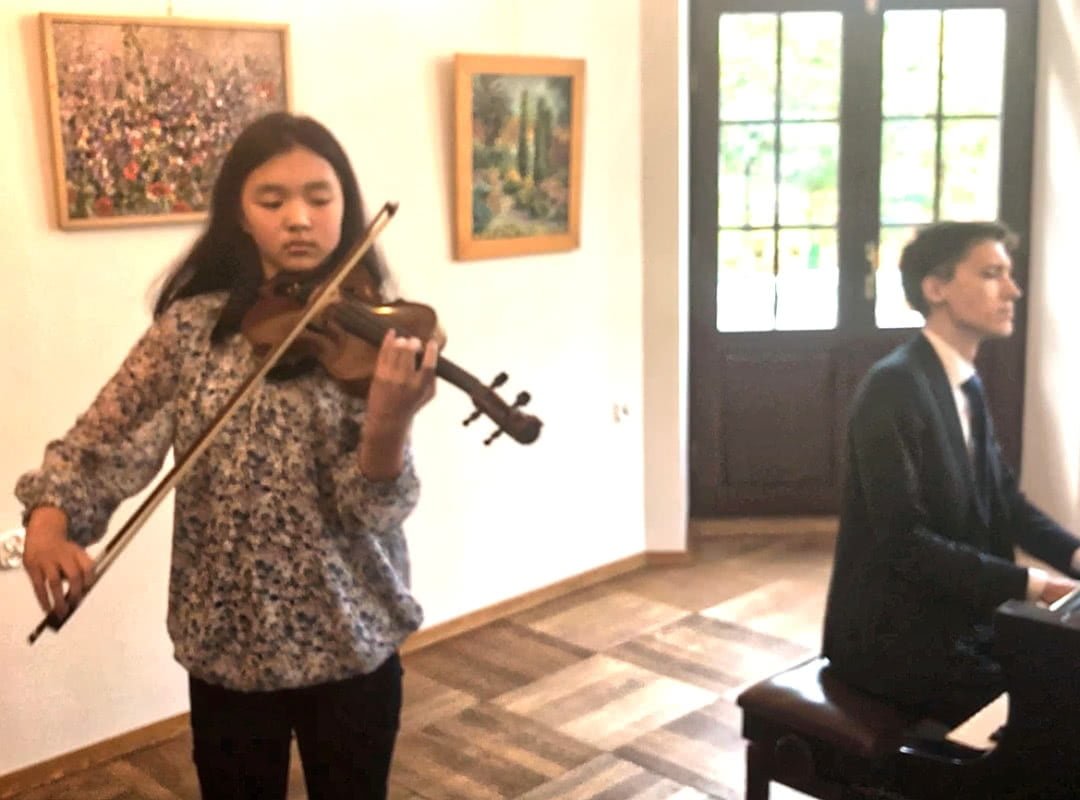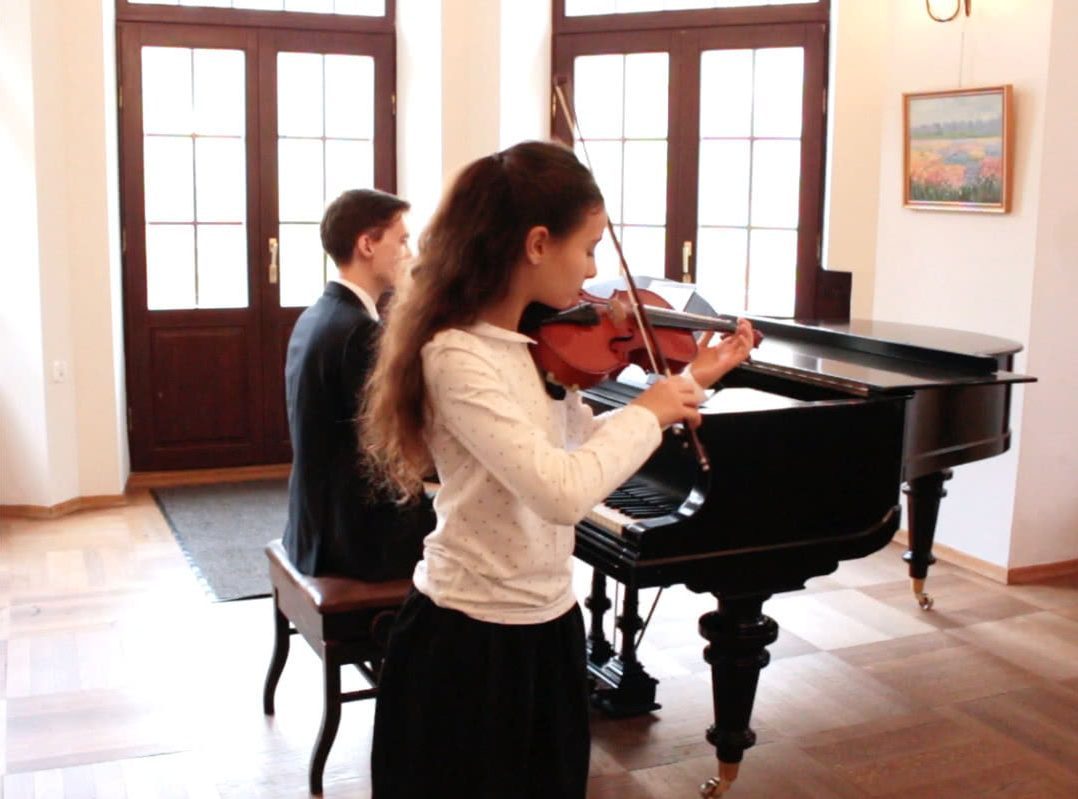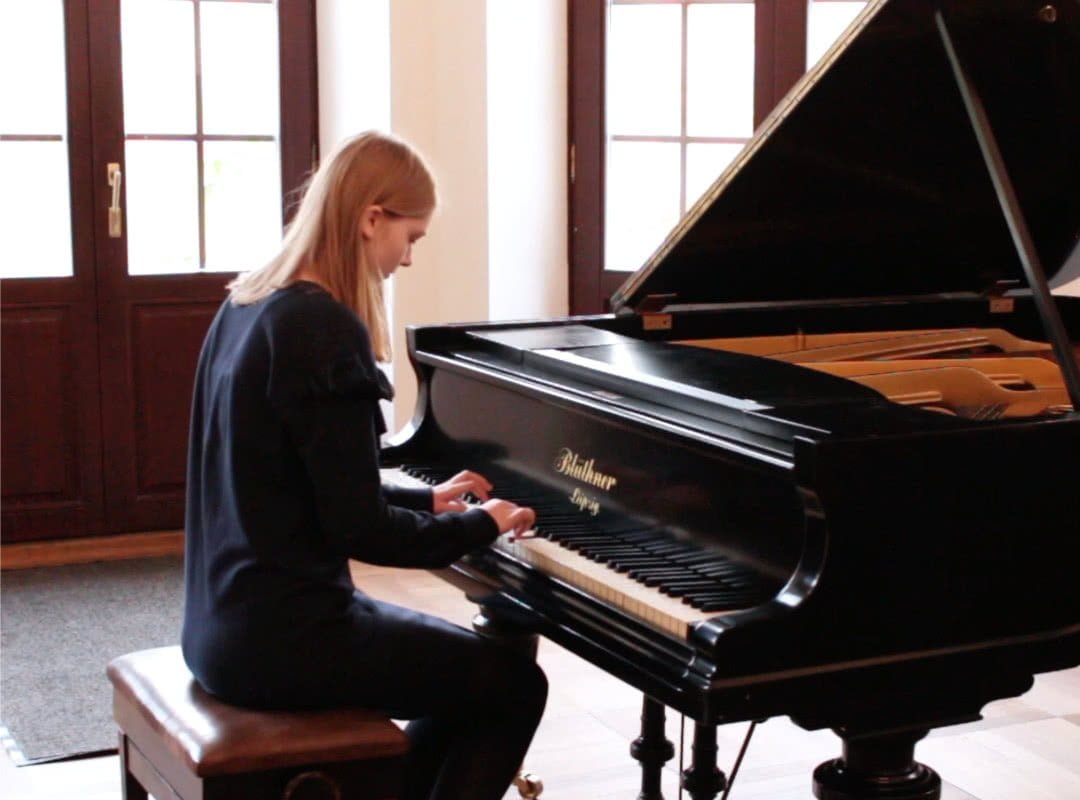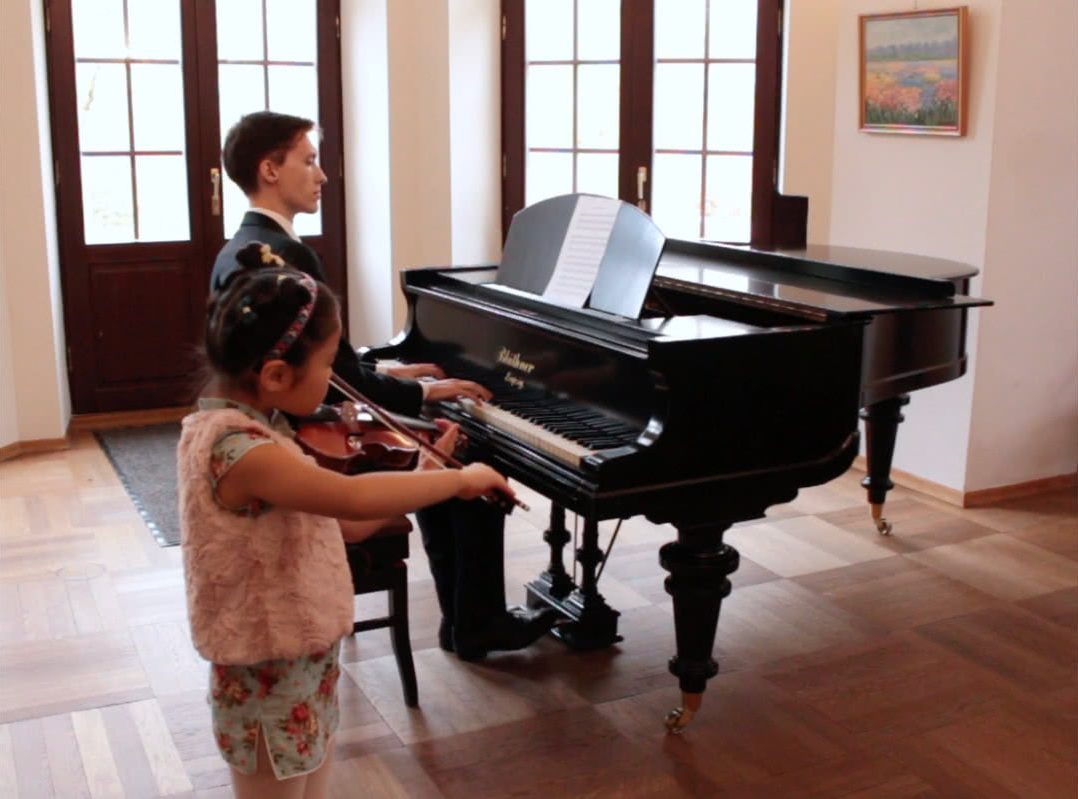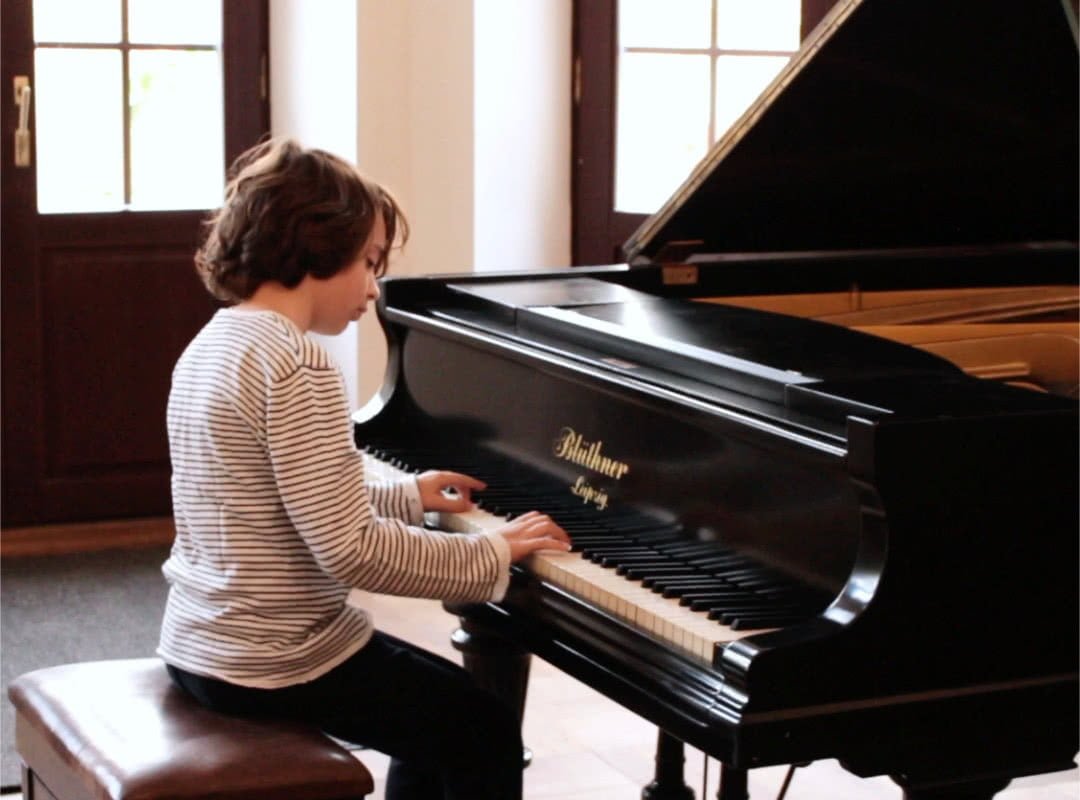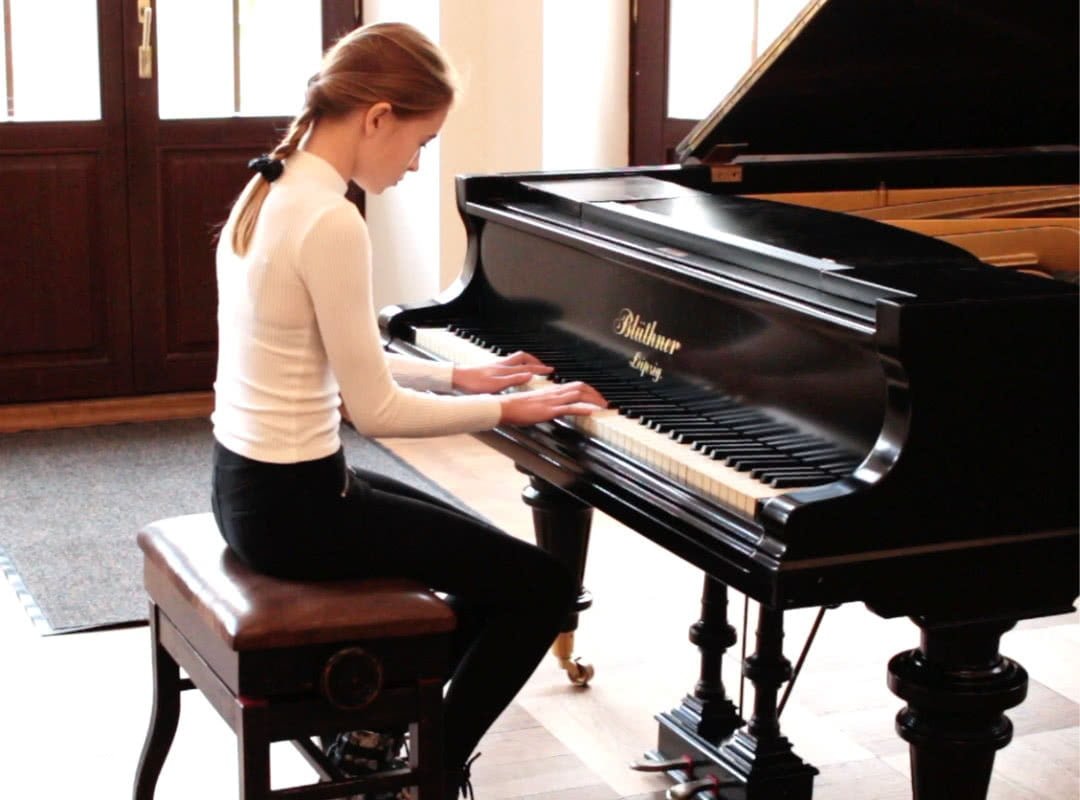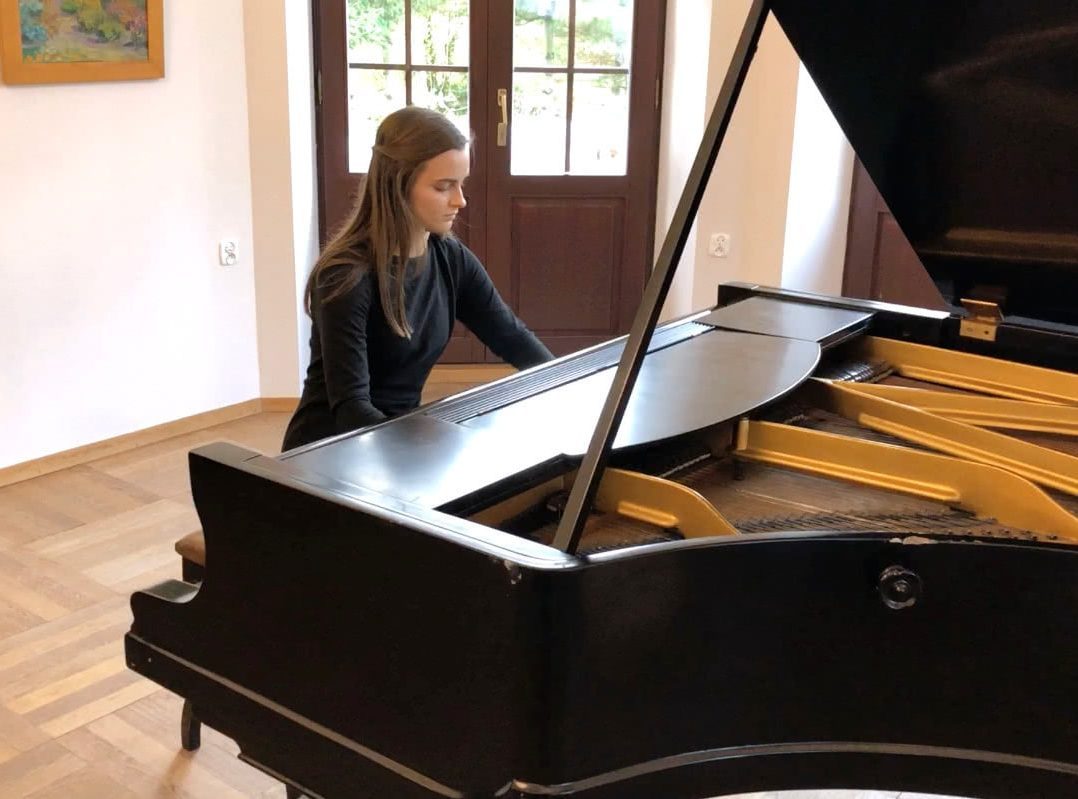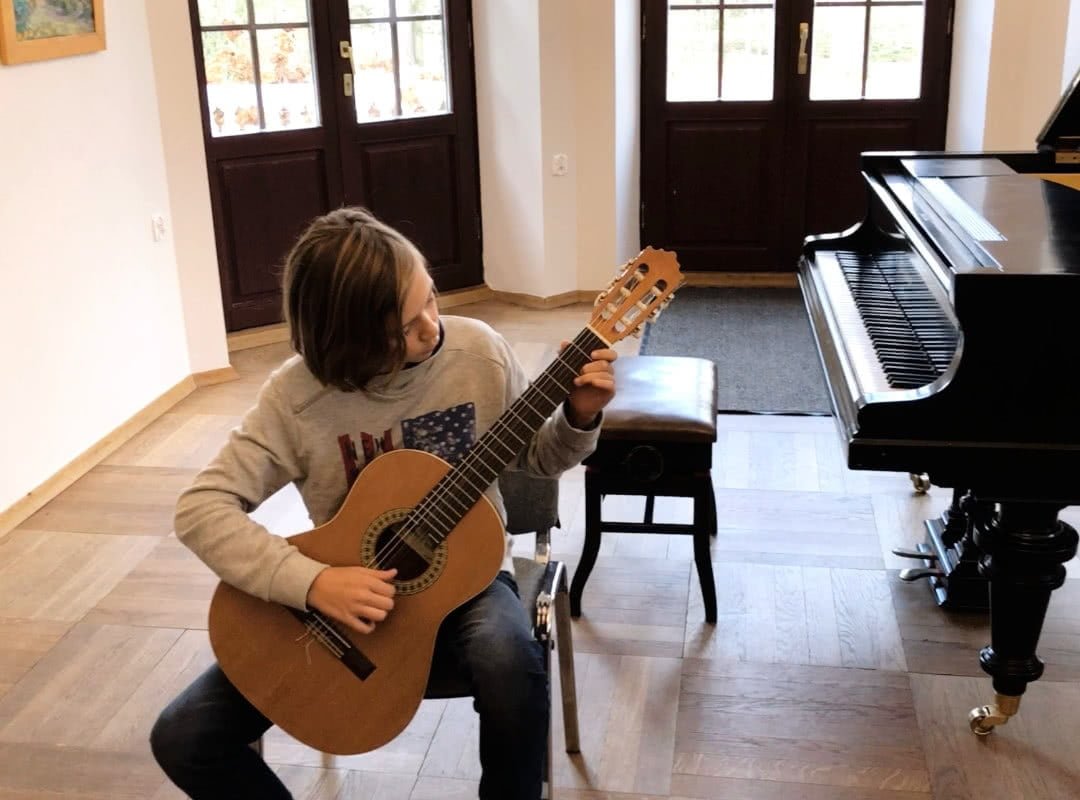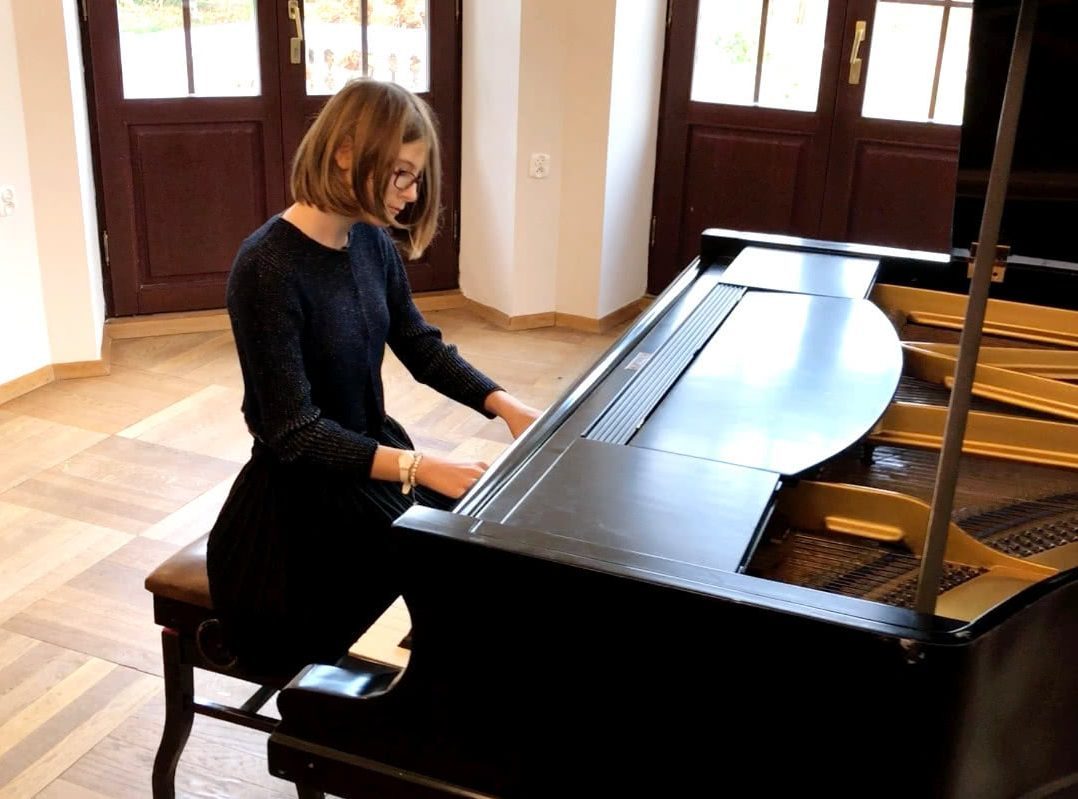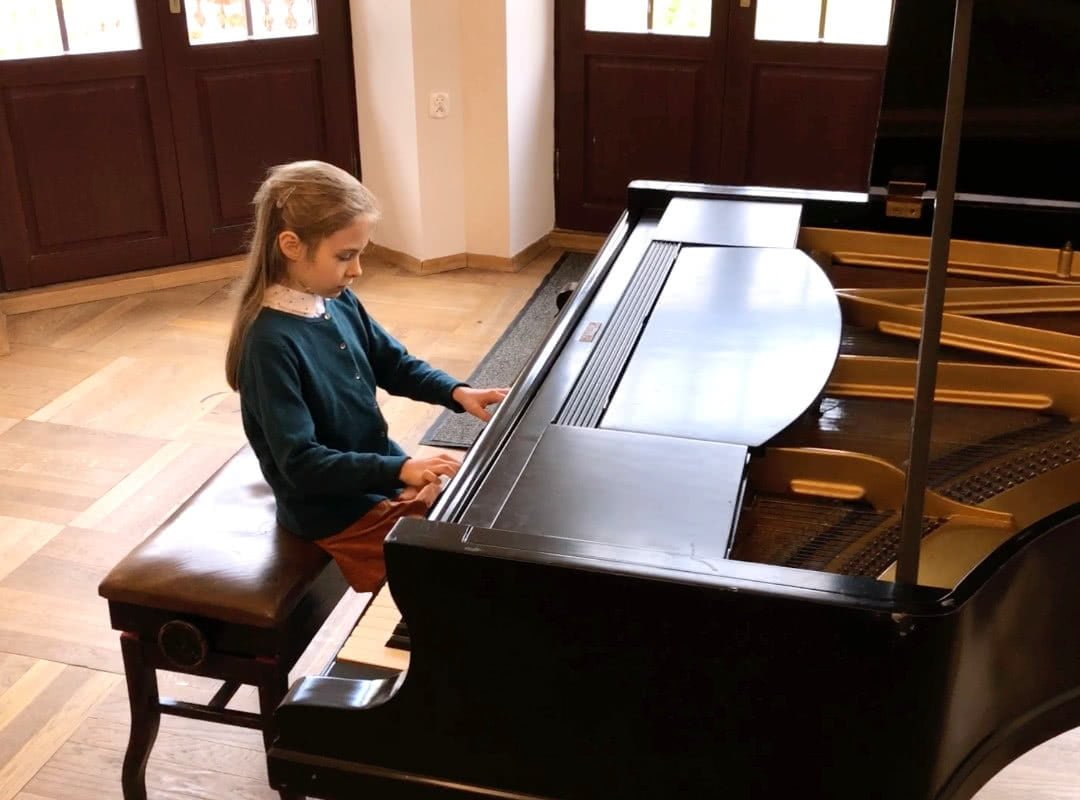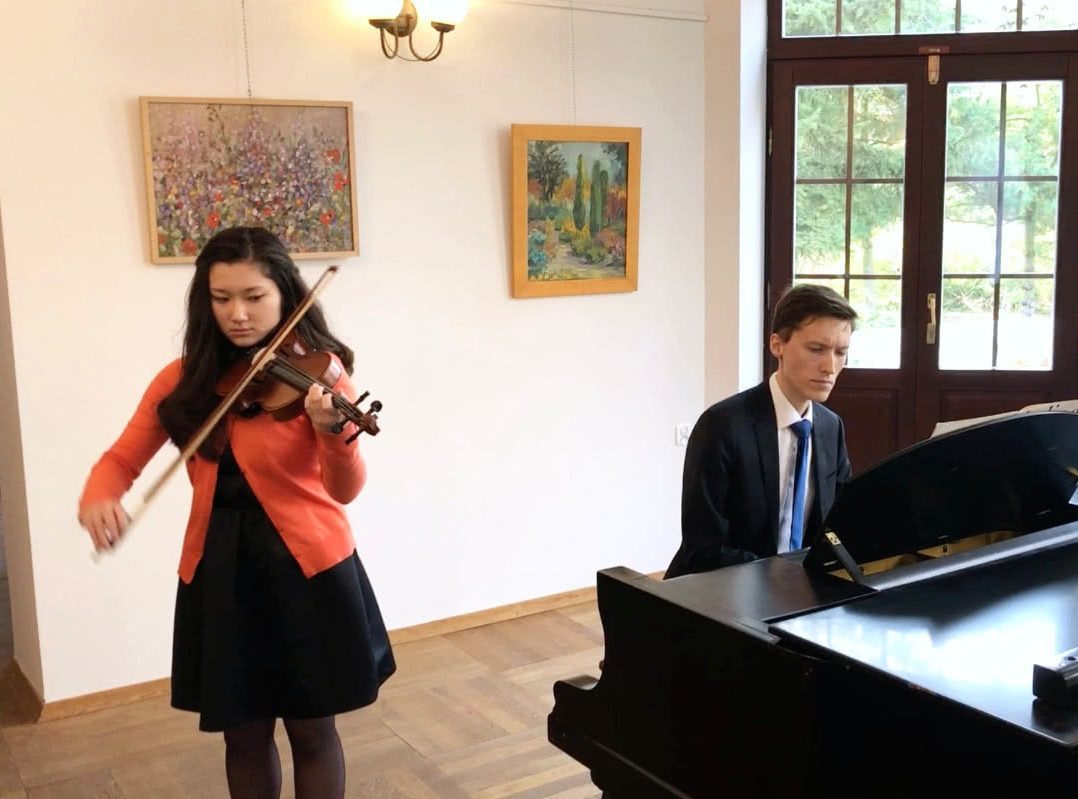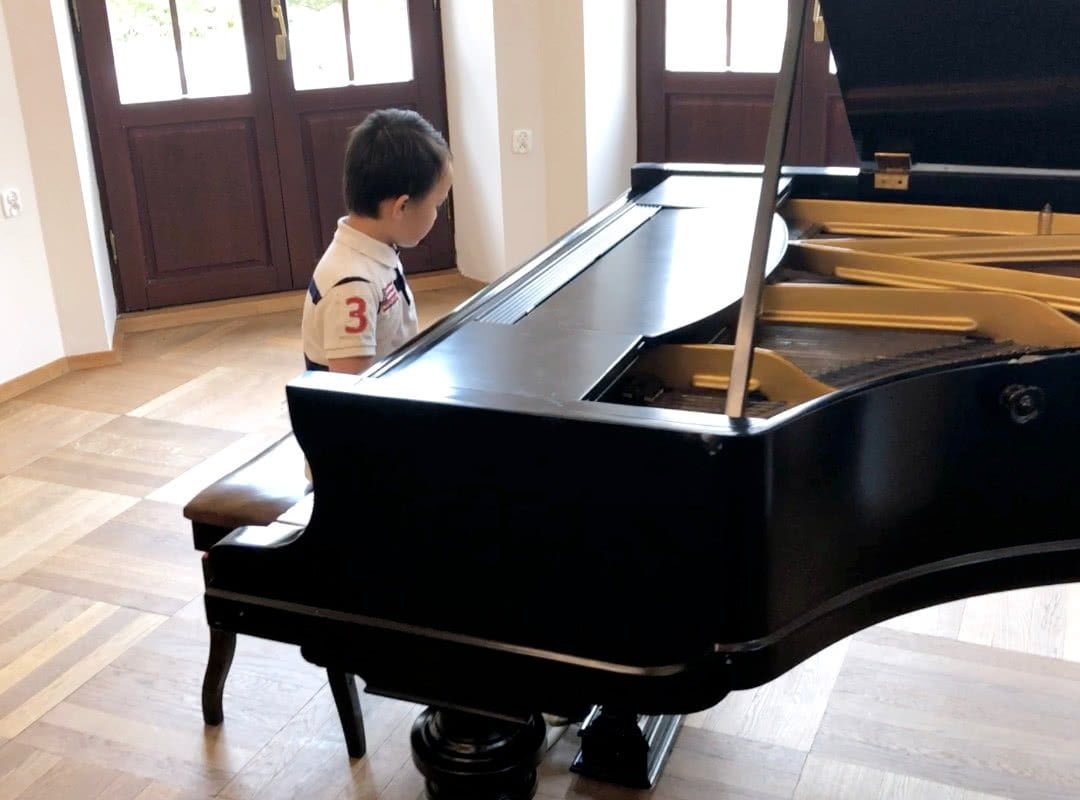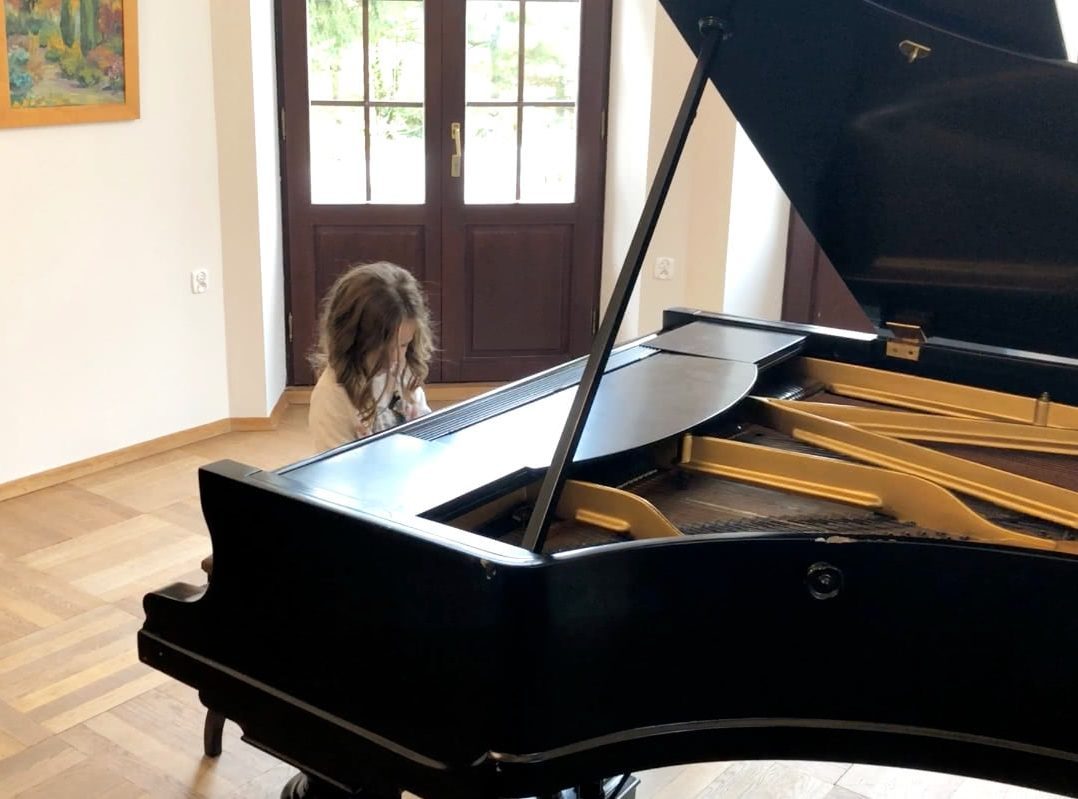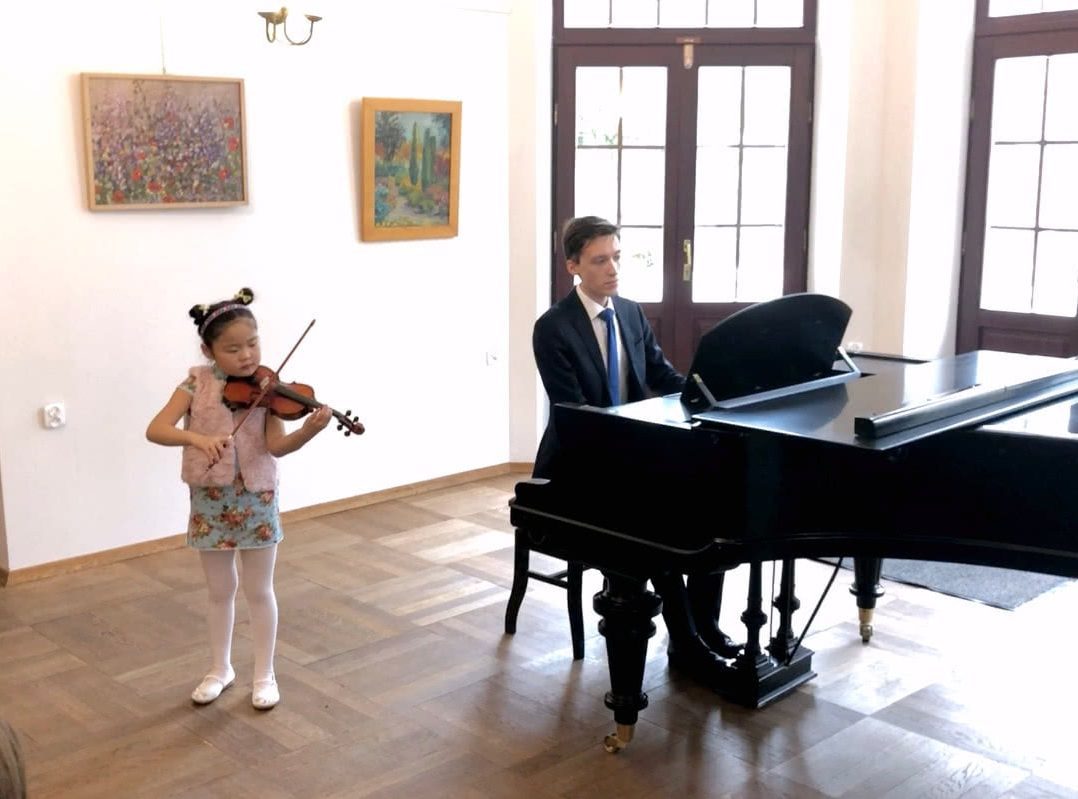With the 2019 Autumn Concert of November 19th Our Academy started the artistic new School Year 2019/2020. In the first place we played in the beautiful Botanic Garden of the Polish Academy of Sciences in Powsin at the Concert Hall of the Fangor Mansion thanks to the hospitality of its Director – Professor Paweł Kojs. Furthermore it enabled us to enjoy and share the entire entourage and music.
The concert was a great success with many people attending. Let alone it included classic pieces from composers such as Haydn, Rachmaninof and Teleman. Nevertheless it should be noted that this concert is just one of many events that Our Academy has planned for this school year.
From the Dr Artur Chmara Class of Piano:
- Patrycja Tabor who presented Minuet by Joseph Haydn and
- Ellie Chandler who played Prelude cis-minor by Sergey Rachmaninof;
Dr Krzysztof Komarnicki Class of Guitar:
- Edoardo Gallerani, who played Andantino by Matteo Carcassi, and
- Achille d’Orgeval who did Masquerade and Dance by John Whitworth
Yulija Leviuk Class of Piano:
- Max Szao who played Miniature by Agnieszka Lasko;
- Giorgio Gallerani playing Allegretto by Joseph Haydn;
- Marysia Kowalczyk did Agnieszka Lasko’s miniature Nocne Stworki (Night Dwarfrs);
- Kamila Butkiewicz presented Mazurka by Alexander Grechaninov;
- Victoria Polipot player Etude by Ludwig Schytte;
- Basia Sobka played The Entertainer by Scott Joplin;
- Karolina Kowalska presented Etude in G-Major by Jean Baptiste Duvernoy;
- Mathilde d’Orgeval played Sonata No. 4 in Es-Major by Wolfgang Amadaeus Mozart. What is more, two pieces: March and April by Piotr Tchaikovsky;
Students of Zofia Zwolinska Class of Violin were:
- Angeline Tworek played the folk song My jesteśmy krasnoludki (We are the Dwarfs);
- Ines Chavrier did Piosenka (A Song) by Joseph Haydn from the violin repertoire for children;
- Avril Lange played Lullaby by Izaak Dunaevsky;
- Haruka Shimisu presented part I from the Concerto in h-Minor by Oskar Rieding;
In fact the Concert was highlighted by Ella Bai (violin) – taught by former Zofia Zwolińska student Joanna Okoń who is actually professor at the Musical High School in Warsaw – Ella presented Fantasy No. 7 by Georg Philipp Teleman and Concerto-Sonata in e-Minor by Francesco Veracini
At the end of the event, all musicians and guests, as usual, were offered candies served by Berenika Zwolińska. Furthermore Berenika, who also announced the performers, invited all to festive Concert of Christmas Carols played by the students of our Academy on January 26th 2020. To conclude with the 2019 Autumn Concert was a great event for our academy.
Autumn is beautiful part of the year
Autumn can be a beautiful time of year, with the leaves turning vibrant shades of red, orange, and yellow, and the air becoming cooler and crisper. Many people enjoy the change of seasons and the feeling of renewal that autumn brings. The autumn season can also be a great time to enjoy outdoor activities, such as apple picking, hiking, and leaf peeping. Many people find that autumn is a particularly beautiful and enjoyable time of year, and it can be a wonderful time to spend with friends and family.
Vivaldi wrote music about it
It is true that Antonio Vivaldi, an Italian composer of the Baroque era, wrote music about autumn as part of his Four Seasons concerto series. The Autumn concerto, which is the third in the series, is a lively and evocative work that captures the essence of the autumn season. The music is characterized by its fast tempos and virtuosic solo violin writing, and it includes movements that depict the activities and sensations associated with autumn, such as the hunting of game and the ripening of the grapes. Vivaldi’s Autumn concerto is an enduringly popular work and is often performed and recorded by classical musicians around the world. It is a testament to the enduring appeal and beauty of the autumn season.
Silhouettes of composers featured in autumn concert
By learning about the works and lives of classical music composers, we can enhance our understanding and appreciation of this genre. This type of music education allows us to delve into the history, context, and contributions of individual composers, giving us a deeper understanding of classical music as a whole. As we explore the cultural and historical influences that have shaped classical music, we also gain insights into the creative process. Overall, studying the works and lives of classical music composers helps us to gain a greater appreciation and understanding of this rich and diverse genre.
Music of Jean Baptiste Duvernoy
Jean Baptiste Duvernoy (1793-1880) was a French composer and pianist who is known for his works for piano and his contributions to piano pedagogy. He was active in the 19th century and is considered one of the leading pianists and composers of his time.
Duvernoy is best known for his works for piano, including his “Etudes,” “L’Art de la Fugue,” and “Grand Method,” which are widely used in piano pedagogy. His music is characterized by its technical demands, musicality, and expressive melodies, and it is considered an important part of the classical piano repertoire.
In addition to his work as a composer, Duvernoy was also an influential music educator, and he wrote numerous books and articles on piano pedagogy. He is remembered as a pioneer in the field of music education and as an important figure in the development of piano education in the 19th century.
Music of Ludwig Schytte
Ludwig Schytte (1848-1909) was a Danish composer and pianist who is best known for his works for piano and his contributions to piano pedagogy. He was active in the late 19th and early 20th centuries and is considered an important figure in the development of piano education.
Schytte is best known for his works for piano, including his “Technical Studies,” “Piano Concerto,” and “Etudes,” which are widely used in piano pedagogy. His music is characterized by its technical demands, musicality, and expressive melodies, and it is considered an important part of the classical piano repertoire.
In addition to his work as a composer, Schytte was also an influential music educator, and he wrote numerous books and articles on piano pedagogy. He is remembered as a pioneer in the field of music education and as an important figure in the development of piano education in the late 19th and early 20th centuries.
Music of Izaak Dunaevsky
Izaak Dunaevsky (1894-1955) was a Russian composer and pianist who is best known for his works for piano, orchestra, and film. He was active in the early to mid-20th century and is considered an important figure in the development of Russian and Soviet music.
Dunaevsky is best known for his works for piano, including his “Piano Concerto,” “Piano Sonata,” and “Etudes,” as well as his orchestral works and film scores. His music is characterized by its expressive melodies, technical demands, and use of folk and popular elements. He was also a skilled pianist and conductor, and he played a significant role in the development of Russian musIc.
Music of Oskar Rieding
Oskar Rieding (1840-1918) was a Hungarian composer and violinist who is best known for his works for violin and his contributions to violin pedagogy. He was active in the late 19th and early 20th centuries and is considered an important figure in the development of violin education.
Rieding is best known for his works for violin, including his “Violin Concerto in B Minor,” “Violin Sonata,” and “Etudes,” which are widely used in violin pedagogy. His music is characterized by its technical demands, musicality, and expressive melodies, and it is considered an important part of the classical violin repertoire.
In addition to his work as a composer, Rieding was also an influential music educator, and he wrote numerous books and articles on violin pedagogy. He is remembered as a pioneer in the field of music education and as an important figure in the development of violin education in the late 19th and early 20th centuries.
We think music student performances on concerts are beneficial to learning
There are many reasons why music student performances on concerts can be beneficial to learning. Some potential benefits include:
- Opportunity to apply what they have learned. Performing on concerts gives students the opportunity to apply the skills and knowledge they have gained in their music lessons to a real-life performance setting. This can help students solidify their understanding of the material and develop their performance skills.
- Chance to gain performance experience. Performing on concerts can provide students with valuable performance experience, which can be helpful in building confidence and poise on stage. This can be especially important for students who are planning to pursue a career in music.
- Opportunity to share their music with others. Performing on concerts gives students the chance to share their music with others, which can be a rewarding and fulfilling experience. It can also be a great opportunity for students to connect with their audience and share their passion for music.
- A sense of accomplishment. Participating in a concert can be a challenging and demanding experience, and successfully performing on one can provide students with a sense of accomplishment and pride in their hard work.
Performing on concerts can be a valuable and enriching experience for music students, helping them to grow as musicians and build confidence in their abilities.
